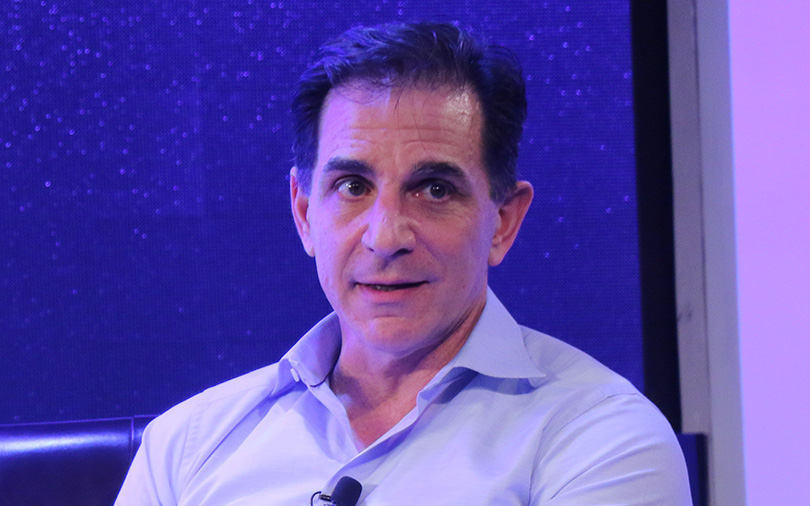
IBM’s Bob Lord bets on India as hub for open-source blockchain solutions


Despite the prevailing scepticism worldwide about the future of blockchain, IBM believes it is still one of the more important frontier technologies for enterprises to bet on for their digital transformation. Specifically in the India context, the Armonk-headquartered technology giant thinks that blockchain, riding on open-source technologies, holds the potential to become ubiquitous across enterprises.
“We have to think of blockchain as one solution that needs to be embedded in all solutions. Blockchain is going to be embedded in the IoT (Internet-of-Things) solution, in the supply-chain solution and any other platform that requires trusted networks,” Bob Lord, IBM’s chief digital officer told TechCircle in a recent interview in Bengaluru.
Lord, who is responsible for IBM’s digital business group, platforms team, digital sales and marketing, keeps close tabs on the company’s developer and startup ecosystem, and was in India as part of the IBM Developer Day that takes place every year. This year, there was an increased interest in the developers' contribution to the open-source community through the launch of the India Developer Champions programme, in partnership with the ministry of electronics and information technology and Nasscom (National Association of Software and Services Companies).

During his visit, Lord’s interaction with a number of Global Systems Integrators (GSIs) in particular led him to conclude that the potential for open-source blockchain development in India is fairly significant, chiefly due to the presence of a sizeable population of developers.
“Of all the GSIs that we have met, that is one of their biggest demands… How do we use hyperledger and how do we bring blockchain into our organisation,” he said. India is an important base for the world’s top 20 GSIs including homegrown ones such as Infosys, Tata Consultancy Services (TCS) and HCL Technologies.
Incidentally, both blockchain and open source were in play at the company’s recently concluded annual Developer Day in Bengaluru. A host of the newly-released open-source code patterns that were made available to developers at the event were in blockchain. Some of the patterns that developers were able to experiment with included creating a blockchain network using the blockchain platform V2.0, storing private healthcare data off-chain and managing medical data using blockchain, and creating a decentralised energy network with IBM blockchain platform 2.0 and a host of other codes.

Lord was bullish on the contribution that India can make in growing the global open-source environment, while also developing the next generation of software around blockchain and Artificial Intelligence (AI).
‘’I truly believe open source leads to greater innovation in the world. The developers here are the ones who are changing the landscape and making everyone’s life different,’’ he said.
IBM first started funding open source about 20 years ago through the Linux foundation. “For me, to code anything like that 20 years ago would have taken me three months and now it takes just three minutes,” he said. Today the open-source technologies that IBM endorses are used by developers to build solutions with AI, machine learning, blockchain, cloud and even Kubernetes.

The Linux foundation’s fastest-growing open-source platform is the hyperledger -- a project of open- source blockchains and related tools funded by Intel, SAP and IBM. The open-source software was built to support the collaborative development of blockchain-based distributed ledgers.
As part of its continued push to take blockchain mainstream, the company launched the IBM Blockchain World Wire this week.
Designed to optimise and accelerate foreign exchange, cross-border payments and remittances, World Wire is a blockchain network which is used to integrate payment messaging, clearing and settlement on a single unified network, while allowing participants to choose from a variety of digital assets for settlement. It has enabled payment locations in 72 countries, with 47 currencies and 44 banking endpoints, according to a statement from the company.

While making the business case for blockchain and open source, Lord also emphasised the three principles that would help the Indian and the global developer communities as a whole. The first being to give back to the family in any way possible. “You could give back to the community by giving back something as simple as a code, or solving a major algorithm problem,” Lord said. He also stressed on exhibiting open governance and to ensure that the developers are not biased towards a particular interest group.
“Finally, are you enabling scale of the community? We are going to need the whole community to help us out in enterprise and societal issues,” he said.
